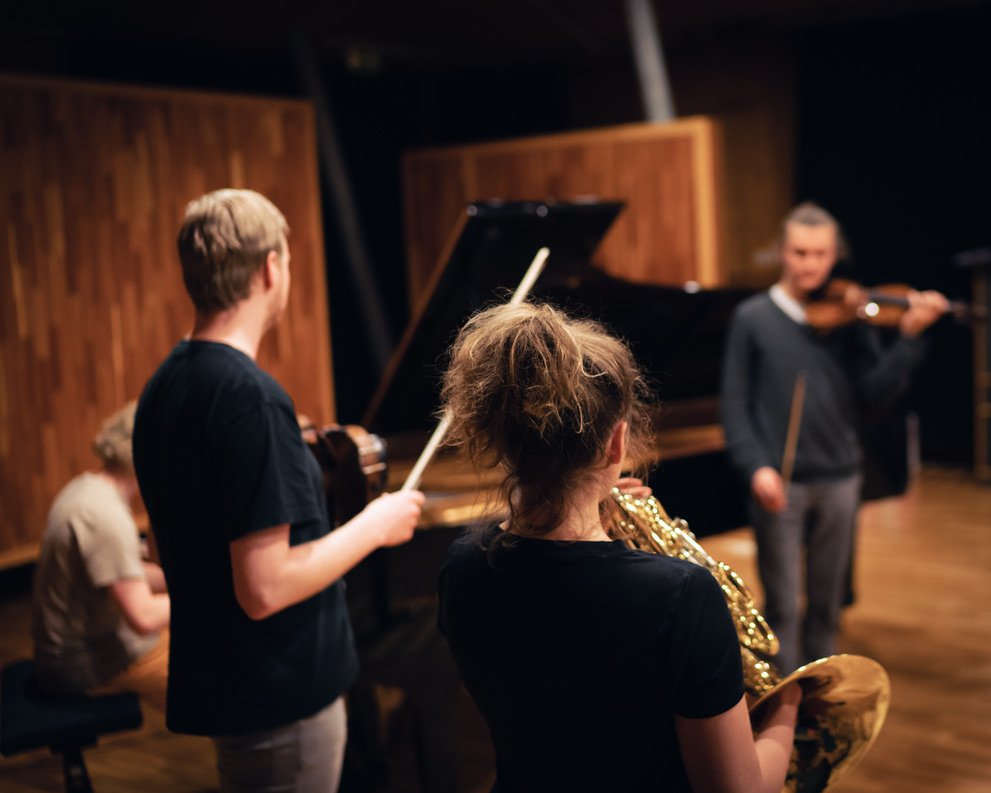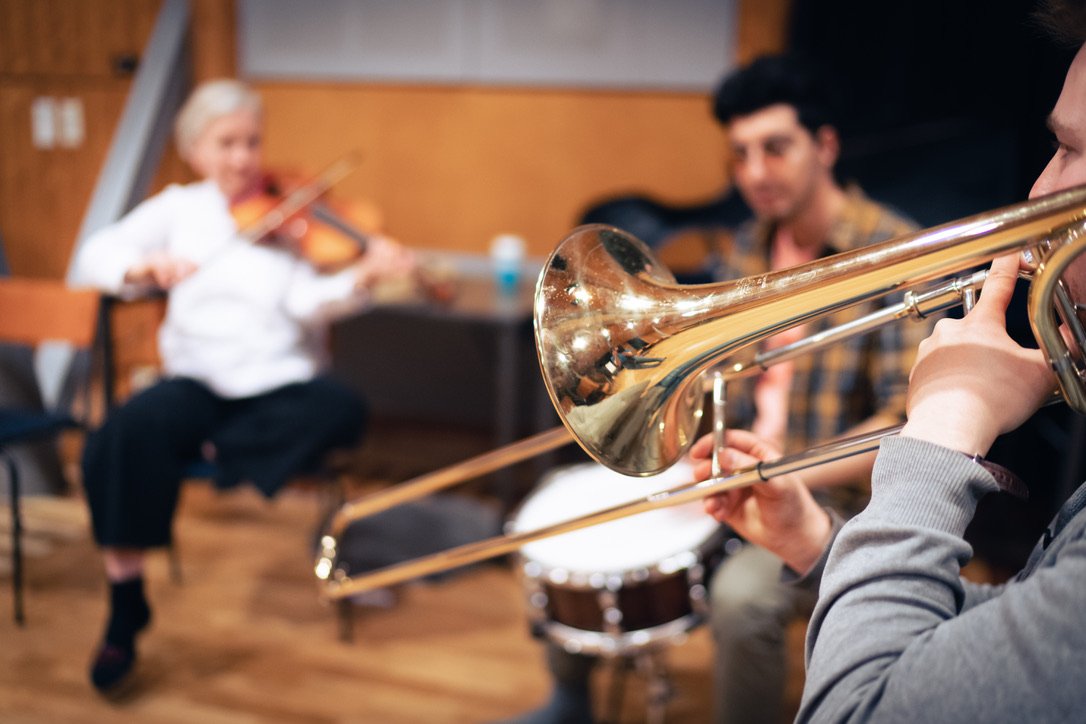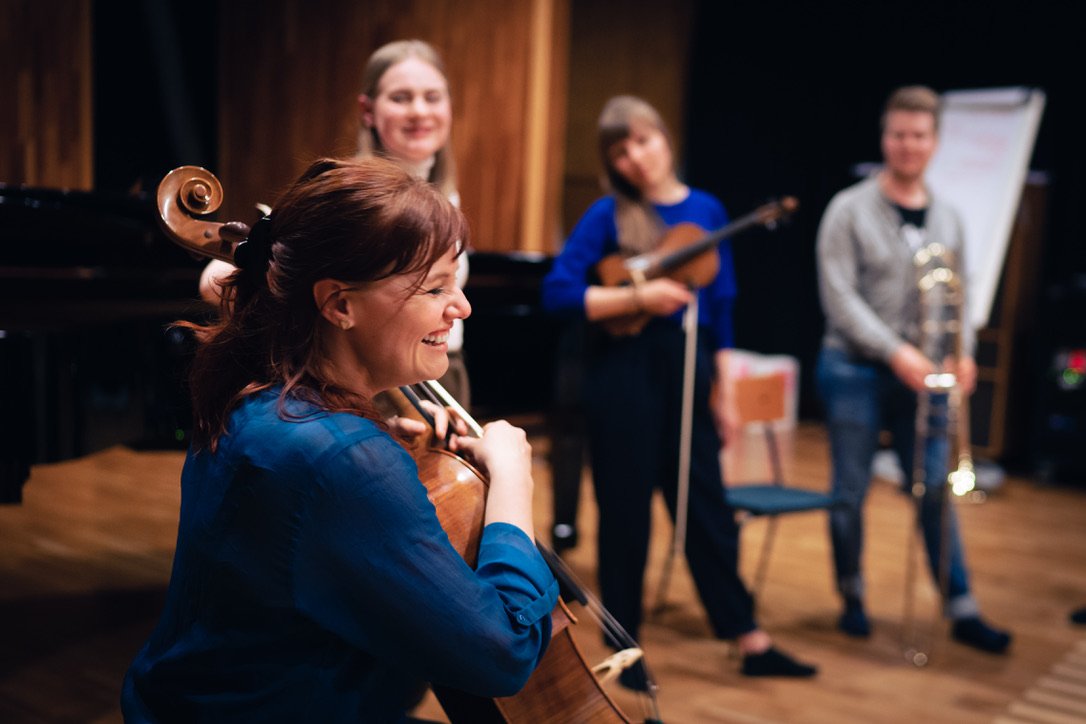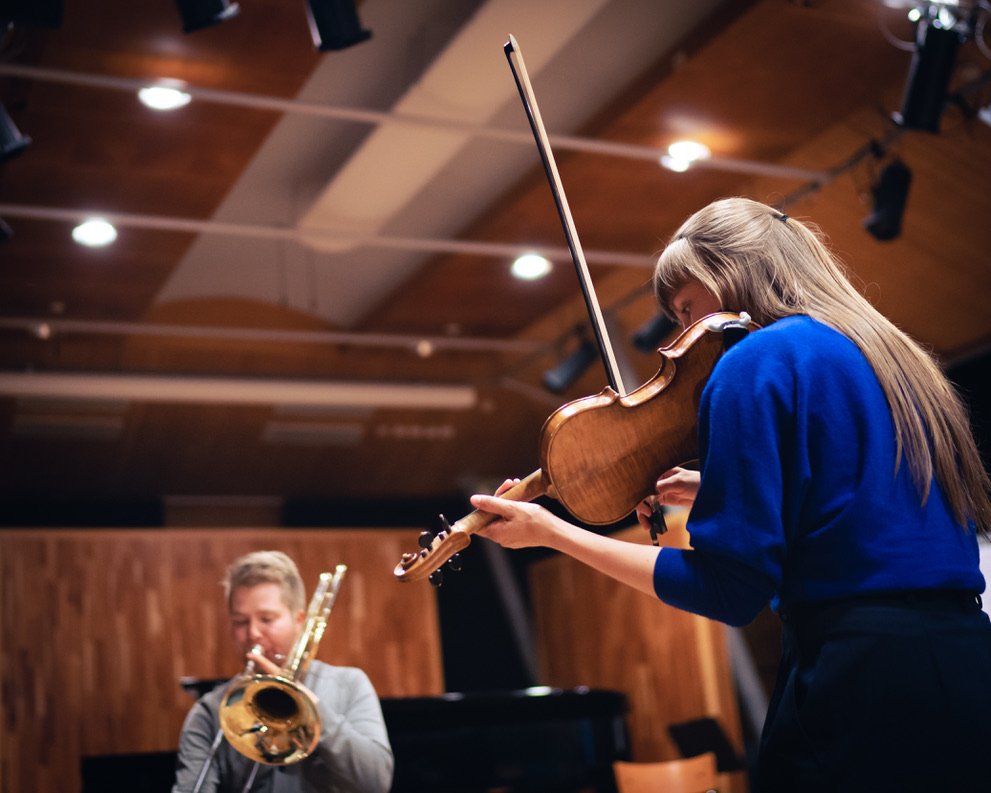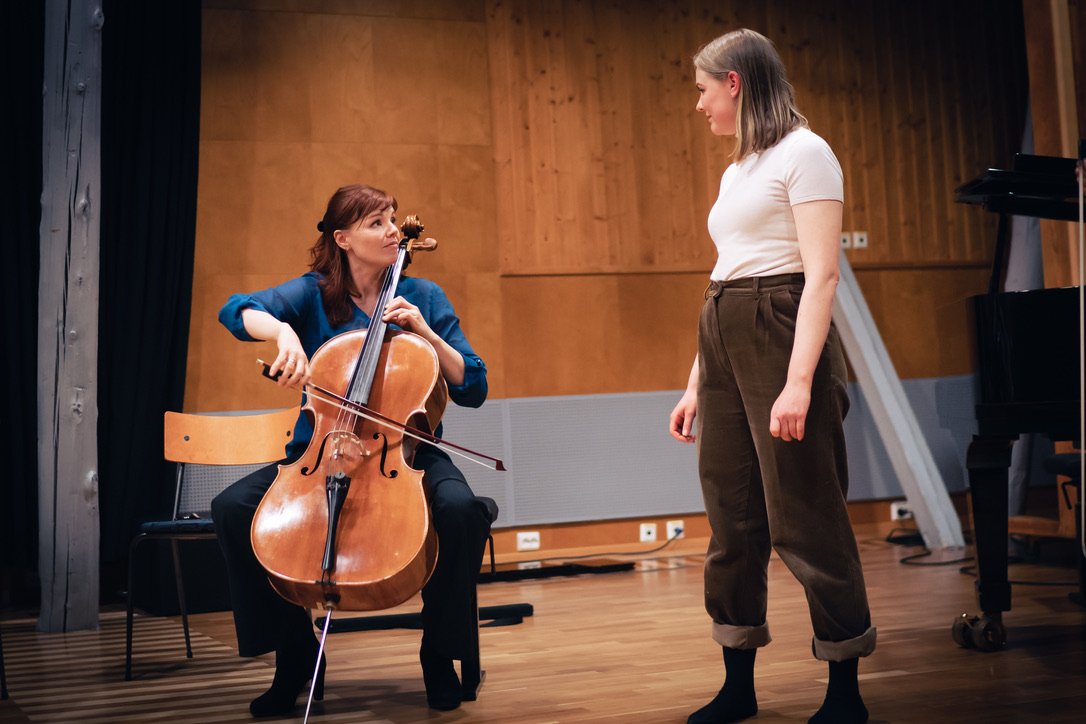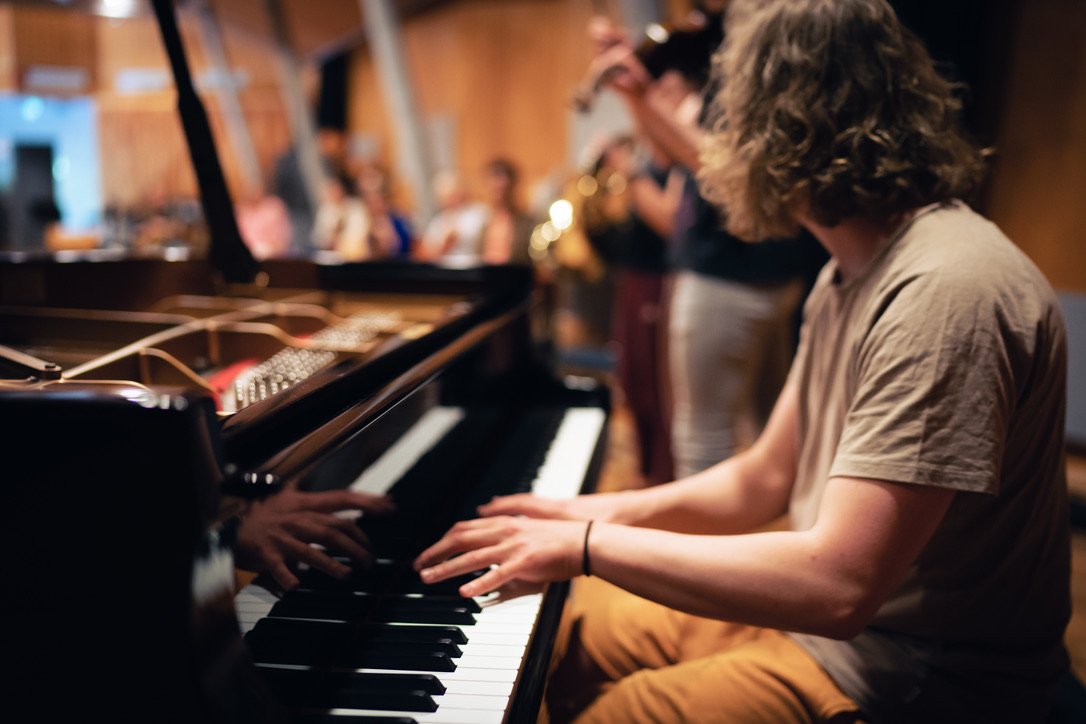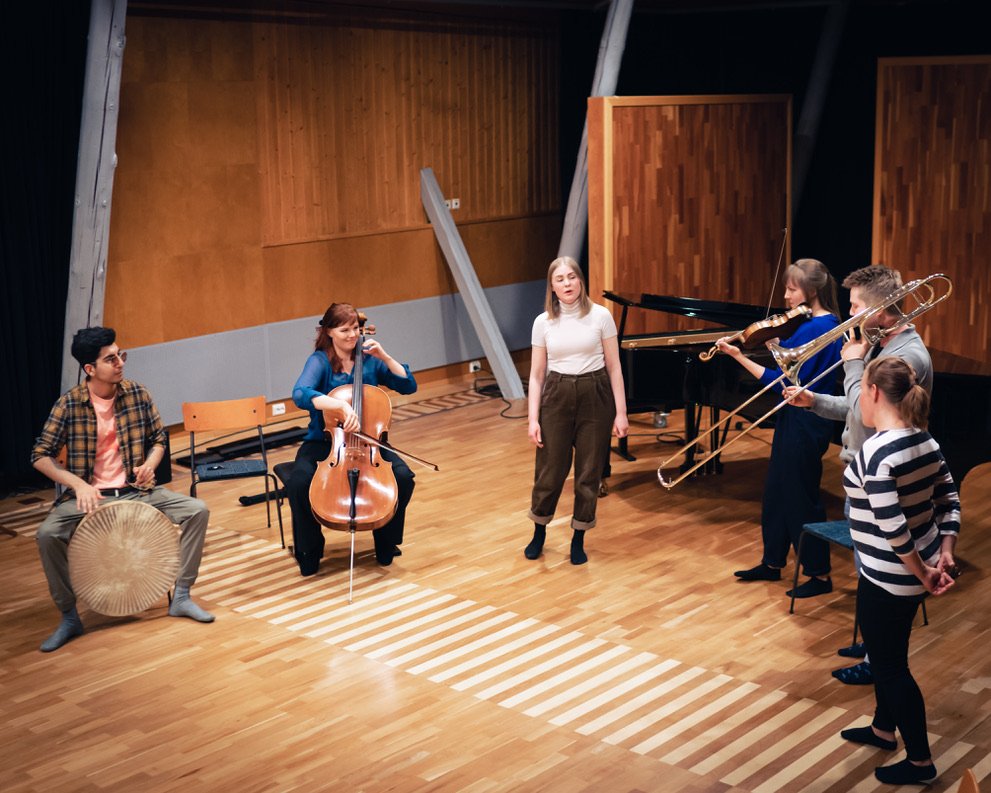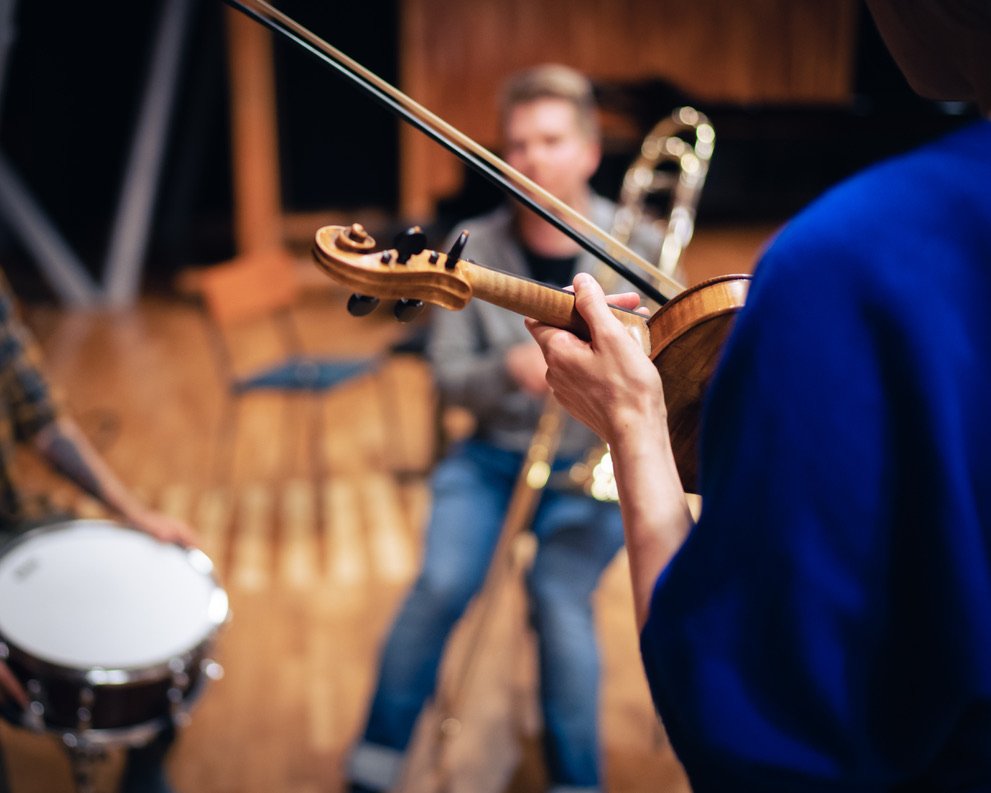Workshops and Masterclasses
Adding solo & ensemble improvisatory elements, such as Fantasies based on audience requests, improvising a 5-minute Rondo or including improvised Preludes, Interludes and Postludes to any repertoire, is within reach for every classically trained musician. The approach introduces step-by-step techniques for musicians to discover their own creative voice, dialoguing with repertoire through improvisatory elements, as well as direct applications of interacting with fellow performers, composers and live audiences. Founded in historically evidenced concert culture, the approach invites performers to pursue improvisation ability in the styles and formats of the Western classical canon - and to experience firsthand the electrifying moments improvisation can bring with live audiences.
Examples of Workshops and Masterclasses I have taught using this method
ORCHESTRAl contexts
Exploring classical improvisation free forms and within repertoire for creative development & performance
Strengthening expressive freedom and creative play, and learning how to harness them in a controlled environment
Integrating improvised and quasi-improvised moments to performances
Improvising fermatas, cadenzas and repeats, as well as embellishing solo passages
Strengthening inter-personal relations and workplace satisfaction through emerging empathetic attitudes linked to musical improvisation
“This is incredibly inspiring... I want to clear my schedule to just practice this!”
“This experience has made me become more deeply aware of what goes on in the music, and I really want to learn more about the art of improvisation.”
“Thank you so much for opening our eyes and ears to something that should have never been forgotten!”
“We want to continue this work with you, and start integrating it into our performances and concerts.”
— Feedback from The Norwegian Chamber Orchestra, 2024
FESTIVALS & CONCERT SERIES
Introduction and inspiration to classical improvisation
Workshops and lectures
Solo and ensemble lessons for all instruments
Adding the performers’ own creative voice through improvised elements
How to use improvisation to increase audience engagement
“I feel more connected with my music-making, and can’t wait to share it with an audience”
“What affected me most is the improvisational approach to my repertoire pieces. I try to play as if they were improvised in the moment, try to let them surprise me!”
“I really want to start adding moments of classical improvisation into my own concerts and recitals.”
“The faculty concert with contemporary music and improvisations might have been the best concert I ever experienced!”
— Feedback from San Marino International Music Festival 2025
ENSEMBLES & CHAMBER MUSIC GROUPS
Re-discovering repertoire through the lens of improvisational performance practice
Sharpening ensemble skills through improvising as active listening, creative problem-solving and responding
How to embrace interaction with audiences and increase engagement
”This was an amazing week! Magical moments between musicians, as a player and as a listener. I don’t think any of us will ever see classical music the same way after this! I really want to continue.”
“I was a bit afraid at the beginning, but this was a perfect beginner course. Now I would love to learn more about all the topics covered and go deeper!”
“This experience has motivated me to bring a higher level of musical communication and human interaction to my section in the orchestra.”
“The concert was an unforgettable experience... I never thought we could do something like that!”
— Feedback from Helsinki Philharmonic Orchestra 2024
FOR CONSERVATORIES & UNIVERSITIES
Discovering your personal, creative voice
Experiencing repertoire and composers come alive through engaging in a personal, creative dialogue with them
How to cultivate a natural performing personality and confident stage presence
Improvisation workshops intertwining study harmony, music history and theory
View from musicology of performance practice: How to build a concert program
“This course just made me want to learn more about everything! Musical forms and theory so I could improvise better, but also freedom in performance... Thank you!”
“The amount of simple and practical exercises we learned for all levels was great. I can use them with my students immediately!”
“The classical improvisation techniques of the course were the most interesting ones for me. I really want to continue learning the forms and structures that we touched upon... and to become an improviser! I can already feel how it benefits my instrument and repertoire studies.”
“I think I am less afraid of mistakes than I was before this course. I also feel more connected to the music, my own expression and communicating something, rather than self-criticism and perfectionism.”
—- Feedback from Sibelius Academy 2024

